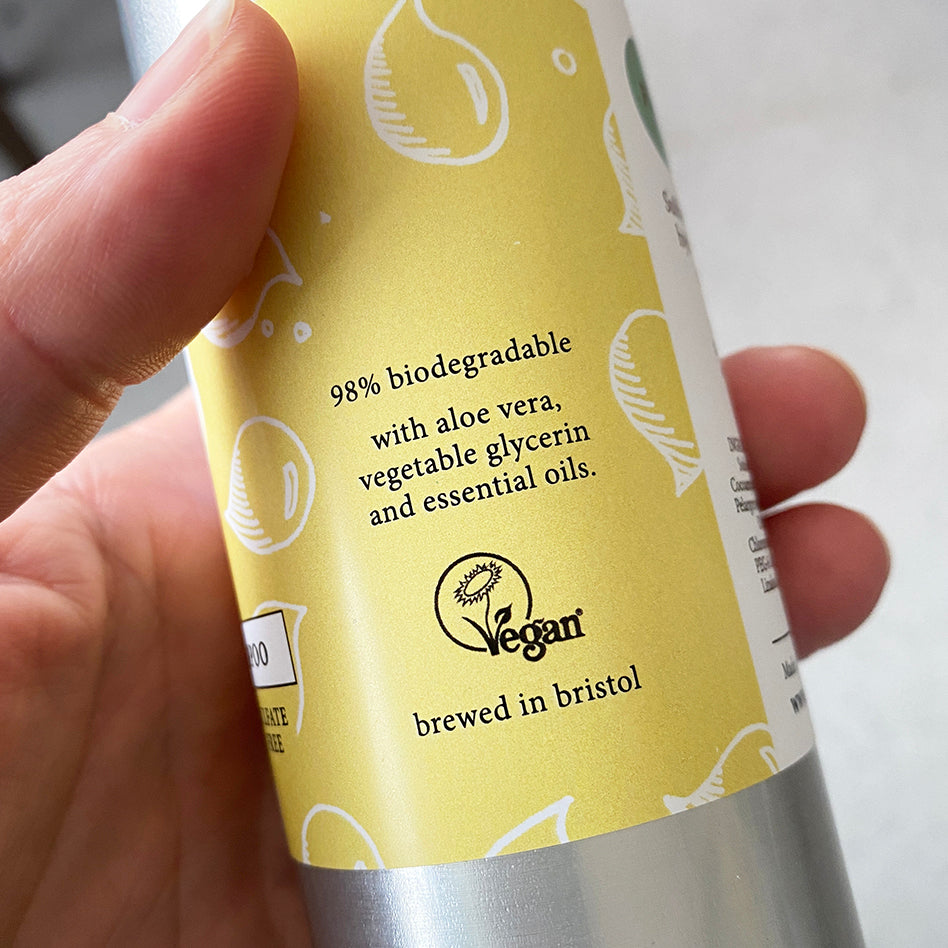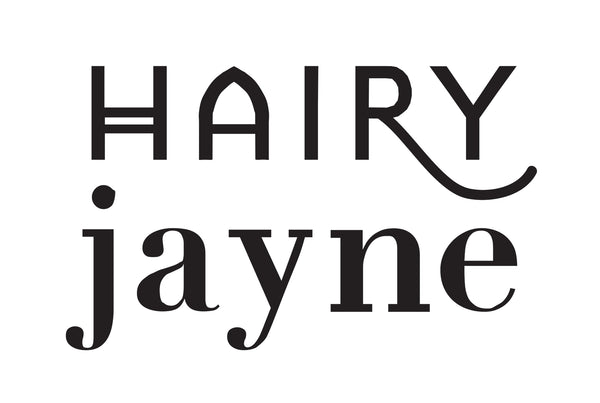
3 things to consider when choosing eco-friendly and vegan hair care
by Kath Hooper.
If you’re looking to make your beauty routine more eco-friendly, you may have some questions about hair care. What do we mean by vegan hair care? Isn’t all shampoo essentially vegan?
Ingredients lists can be confusing
If you’ve ever attempted to read the ingredients list on your shampoo bottle, you may find it hard to know what any of them are, let alone which of the ingredients are vegan or non-vegan.
To the average person without a chemistry degree, it’s a long list of indecipherable words. You know that the sum of these ingredients will clean your hair, but you’d have no idea what a “Dimethicone” is in the wild, let alone if it's eco-friendly.
Let’s take a look at some of the common questions about ethical, vegan and eco-friendly hair care.

1. What makes a hair product vegan?
What’s not vegan about your shampoo? You don’t often see it flavoured with chicken or infused with cheese (gentle nudge to reconsider your hair care regime if you do).
Your shampoo and conditioner may contain some incognito non-vegan ingredients. These sneaky constituents are not obviously labelled as derivatives of animal products. But without the “vegan” label on the packaging, you can’t necessarily be sure.
Here are two examples of non-vegan ingredients:
Biotin isn't always a vegan ingredient
Biotin is often used in shampoos and conditioners to promote hair growth.
It can be derived from vegan sources such as seeds and nuts. But it may also come from eggs and fish. Often a label won’t specify the source of the biotin ingredient. So if it’s not carrying the “Vegan” accreditation, it’s difficult to know if the biotin is from animal products.
If you want to play it safe and you want healthy growth in your hair, you don’t need biotin.
Something like wheat protein, found in Hairy Jayne’s treatment conditioner, will do the same job. In fact, it’s likely to do a better job. Our natural and vegan products are great for hair growth because they don’t contain lots of synthetic chemicals that can damage your hair.
Keratin isn't plant-based
Keratin is commonly used for its strengthening properties. It’s a type of protein found in your skin, nails and hair. However, it is also found in animal hooves, feathers, hair, and horns. It’s usually these products that are ground into keratin for commercial use.
Suddenly the idea of ground hooves on your hair is a little less appealing than its strengthening properties.
You can achieve strong healthy hair with the power of plants. Mango butter is the lightweight strongman of the strength and conditioning world. It reduces breakage and strengthens follicles and that’s why we use it in Hairy Jayne shampoo and conditioner bars.
Much more wholesome than ground up hooves.

2. Does vegan hair care equate to ethical hair care?
Is vegan hair care ethical? In short…yes!
If your meaning of 'ethical' is that animals aren't used to produce the ingredients of the hair care product.
The terms 'vegan' and 'cruelty free' in beauty products sound very similar, but have separate meanings. 'Vegan' means it contains no ingredients that are derived from animals. 'Cruelty free' means no animal testing has been performed on the product and usually means no vegan ingredients were used as well.
Animal testing on finished products is banned everywhere apart from China, so if a product is sold in China then it isn't cruelty free as it's been tested on animals.
So vegan products can actually still be tested on animals. If you are concerned by animal testing, then you can put your mind at ease by choosing products that say they're vegan and are also cruelty free.
Look out for the Vegan Society logo on the label for peace of mind.
3. Is a vegan product the same as an eco-friendly product?
When you think of a product being “eco-friendly”, you probably think about its impact on the environment.
One of the greatest benefits of a vegan lifestyle is the low environmental impact. One of the main reasons people embrace veganism is to help stop climate change.
Non-vegan hair care also tends to include synthetic chemical ingredients that contaminate water supplies. Inadvertently, as you wash the shampoo down the drain, these synthetic chemicals harm the health of marine life. Hairy Jayne products use naturally derived ingredients wherever possible and are highly biodegradable.
Look for palm oil free hair products
Many hair products use palm oil as it is a foaming agent that can give a boost of moisture to your hair, and it is a cheap ingredient to use.
Palm oil itself is not at all problematic. But it’s not always sourced in sustainable ways. The deforestation of palm oil plantations is destroying the habitats of the orangutang, the Sumatran tiger and thousands of smaller species that rely on rainforests.
As a conscious consumer, one option is to find palm oil that’s accredited for being sustainably sourced. If you’re not sure if the palm oil is sustainably sourced, and you’re concerned about the environmental impact, it's best to avoid it.
You can achieve the same moisturising effect with other natural ingredients such as aloe vera and get the foaming benefits from coconut derived detergents. Both of which we use in our palm free shampoo bars.
While “vegan” does not necessarily mean the same thing as “eco-friendly” or "cruelty free", all of Hairy Jayne’s products hit the triple. They are both vegan and cruelty free as well as being eco-friendly hair care products.

